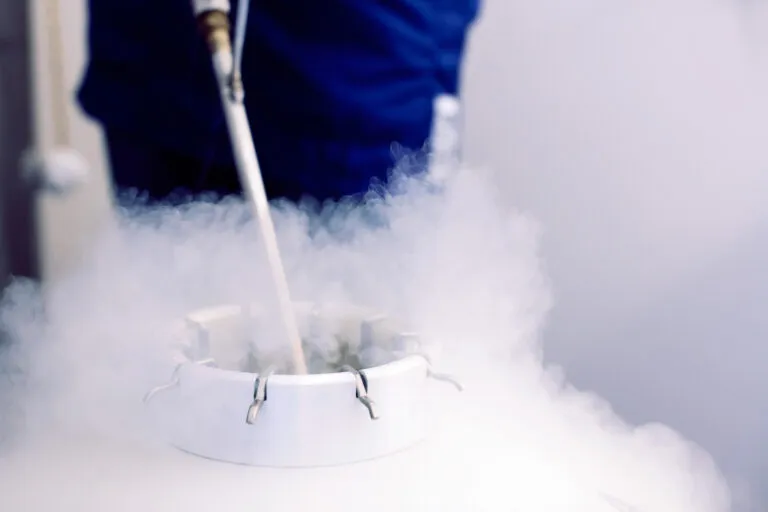Modern foetal and maternal medicine is developing intensively. It is possible to carry out procedures on children who are still in the uterine cavity. Intrauterine transfusion is one such procedure. It is one way of treating a serological conflict or anaemia caused by a parvovirus infection. How does this treatment work?
What is an intrauterine transfusion?
Intrauterine transfusion is one of the procedures in the field of perinatology. It is a procedure carried out by specialists in foetal therapy. Blood is transfused into the baby’s bloodstream in the womb. This is often a life-saving procedure for the baby. Certain indications are required for the procedure, including suspected anaemia in the child. This can have various causes, e.g. a serological conflict. Injecting blood into the baby’s circulation reduces the risk of further complications such as the development of generalised oedema or intrauterine necrosis.
What does intrauterine transfusion involve?
Intrauterine transfusion is actually a blood transfusion. However, it differs from a “normal” blood transfusion in the conditions and the extent to which it is carried out. This is because in an intrauterine transfusion, a blood product is administered directly into the circulation of the foetus, which is located in the uterine cavity. After disinfecting the area, the doctor performing the procedure pierces the umbilical cord vessel with a thin needle under ultrasound guidance and administers the appropriate, specially prepared blood in a quantity corresponding to the severity of the anaemia.
The parameter that is monitored when anaemia is present is the middle cerebral artery flow (MCA PSV). Based on this parameter, doctors can suspect that the baby is developing anaemia and may require an intrauterine transfusion.
When is an intrauterine transfusion carried out?
Intrauterine transfusions are most commonly carried out when fetal anaemia or generalised oedema is suspected. A common cause of anaemia of the baby in utero is a serological conflict. It should be borne in mind that this can occur not only in relation to the Rh groups, but also to other systems, e.g. Kell or Duffy. Another cause of anaemia is infection with parvovirus B19. This is an infectious disease that can occur in preschool children, for example. It is particularly dangerous for babies in the womb and leads to anaemia and swelling. The treatment in such cases is an intrauterine transfusion.
The intrauterine transfusion can be repeated during pregnancy if necessary. If foetal anaemia is suspected, the expectant mother should visit a centre that specialises in this type of treatment and has experience in foetal therapy.
Read more: Parvovirus infection during pregnancy










